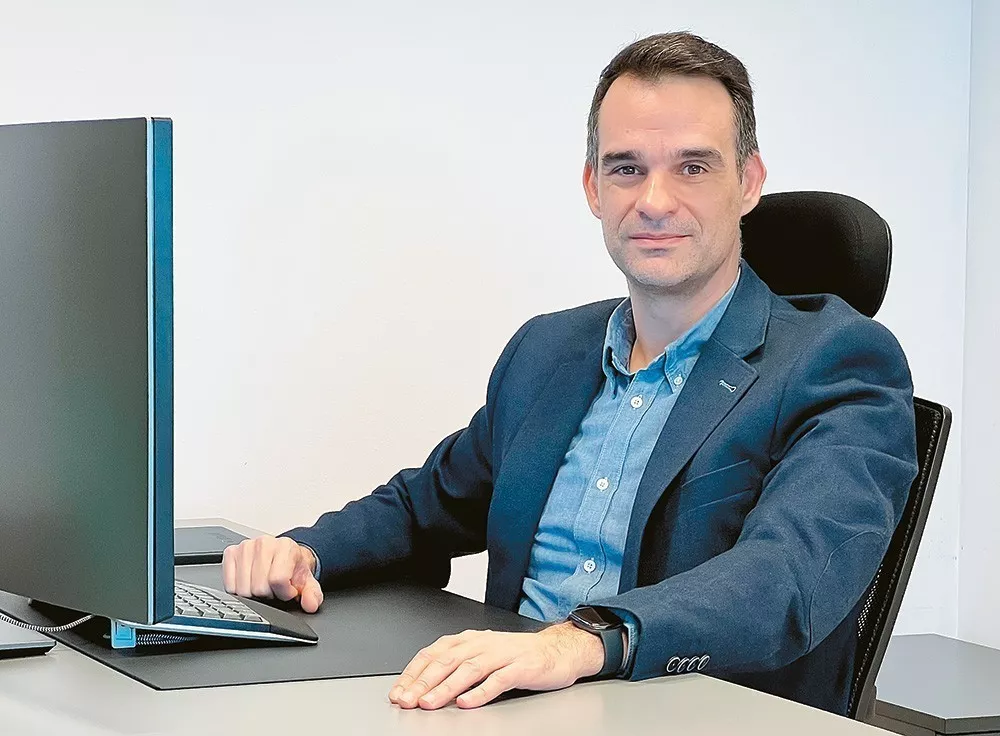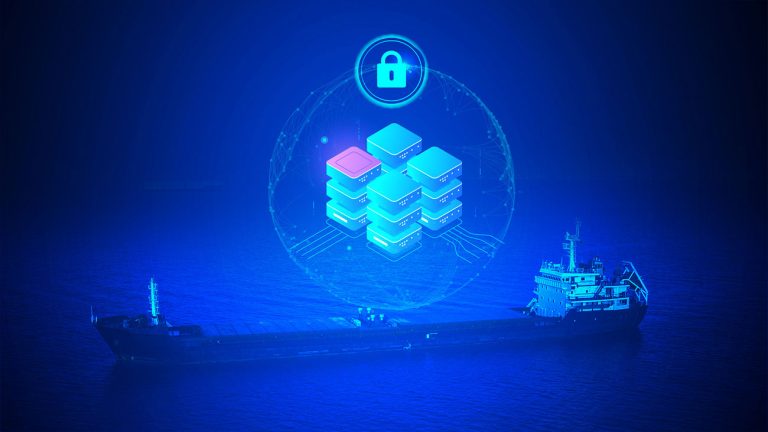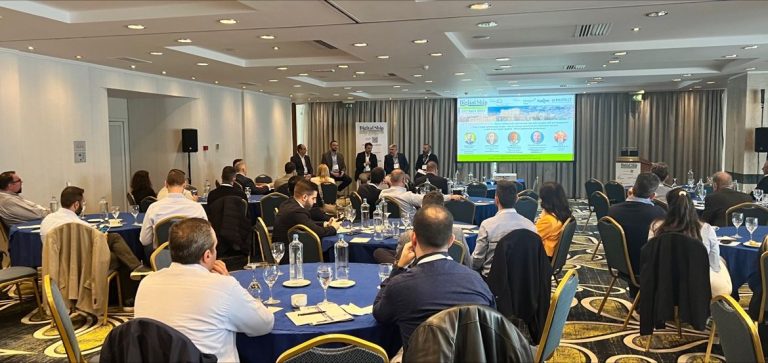Our co-founder Dimosthenis Arkoudeas was recently interviewed by Minas Tsamopoulos delving into the challenges and opportunities in this rapidly evolving space.
Green Technology, Fast Satellite Communications, 5G onboard Ships, and Sensor Technology and Performance Monitoring are all paving the way for a more efficient and sustainable industry.
Demosthenes Arkoudeas (Marpoint): “Digital transformation is a one-way street for shipping”
The co-founder – together with Nikos Alafodimos and Anastasis Kyrkos – of the technology company Marpoint guides us through the challenging world of digital changes in the maritime industry
Information technology-ICT has now become an integral part of the operation of shipping companies both in the offices and on the ships. Shipping was a latecomer compared to the land-based industries , having faced and still faces a serious difficulty. Ships… move by sailing the seven oceans and are not fixed like, say, a factory.
Satellite communications, digitization, cyber security on board ships are some of the challenges that shipping has been asked to face. Companies of Greek interests, led by the new generation, have taken the industry by the hand and are guiding it into safe technological waters.
The “bond” between shipping and IT is analyzed in “business stories” by Demosthenes Arkoudeas, co-founder together with Nikos Alafodimos and Anastassi Kyrkos of Marpoint, which is a technology company that designs solutions that cover 100% the needs of shipping.
– Mr. Arkoudea, I want you to introduce yourself as a company.
Marpoint provides comprehensive computer network management solutions designed for the growing needs of commercial shipping. These solutions include software, hardware and services, the majority of which are developed in-house.
The specialization of the products and services combined with the high level of know-how and reliability ranks Marpoint among the leading companies in the sector worldwide.
– To what extent is the opinion that shipping is slow to adapt to technological developments valid? Why is this happening;
For many years it is a fact that shipping closely followed technological developments, but with a slow adoption model. This now appears to be changing as it is understood that optimization of operations both commercially and regulatoryly will only come through the adoption of new technologies. At the same time, the technological solutions provided are more mature, such as satellite communications, IOT, cyber security, Machine learning, making it easier to apply them in the remote environment of a ship. Without exception, digital transformation is not an option for a shipping company. It’s a one-way street.
– What are the developments in the regulatory framework?
From January 1, 2021, the regulation of the International Maritime Organization-IMO on cyber security has been implemented. According to the “Maritime Cyber Risk Management in Safety Management Systems” regulation, ship owners and managers must ensure that there is a cyber risk management provision in their ship’s security rules.
In addition, the International Association of Surveyors (IACS), based on the new Unified Requirements it published (Unified Requirements, E25 and E27) for cyber security added a mandatory framework on cyber security for registered ships and marine installations to be delivered after on January 1, 2024.
– How is the headache of cyberattacks increasing every year dealt with?
Cyber attacks are here to stay. There is no magic rule for dealing with them.
The more an organization’s defenses improve, the more complex the attacks will become. It requires continuous effort, which means that a prevention and control mindset must be an integral part of a shipping company’s daily operational readiness.
– So?
Proper planning in the information systems, existence of the appropriate protection and attack detection tools, effective continuous training of all personnel and an alternative operation and recovery plan in case of an attack are measures that every shipping company should emphasize.
– How are cyber attacks usually carried out? Also, I would like you to tell us if it happens more in companies or ships?
In recent years, cyber-attacks have been carried out on several shipping companies, including large groups. They focused on the offices of the companies and their suppliers with the ultimate aim of affecting basic functions and services that also extend to the ships. With the development of satellite communication speeds and the introduction of information systems on ships, it is a given that we will see more cyber attacks being made directly on ships.
– Creepy, as the youth say, just to think of a ship unruly in the ocean with all its systems “blinded”. What insurance do you offer your customers?
Marpoint’s services and products are centered on the logic that every ship network is considered a zero trust network. It is designed and implemented autonomously, independent of the connections it has with the offices of the shipping companies and the public services of the Internet.
Great importance is given to the central monitoring-alerting and to the readiness of all services to ensure that the ship’s commercial operations can be served in any case.
– Is crew welfare, wellness as we know it in shipping, over the internet a backdoor for hackers?
In no way do we believe that the crew should be deprived of their communication and entertainment in order to avoid cyber-attacks. Part of the solutions we provide ensure the smooth coexistence of the crew’s devices, such as mobile phones, tablets, computers, completely isolated from the “business” devices, i.e. those that are required to cover all the operational functions of the ship.
– Are seafarers and office workers properly trained in matters of protection against cyber-attacks and proper navigation on the Internet?
In the matter of training, the shipping companies, especially the smaller ones, have not given the importance that the new conditions require.
An effort is being made by us and the companies in the sector to emphasize the need for systematic repeated training. One could safely say that this is a problem not only in shipping, but in all industries, since, regardless of the security policy of each company, the end user plays a very important role.
I personally consider the training of end users, in offices and on ships, in matters of safe use to be one way, and maybe after some years the certifications in this field will be a prerequisite for finding a job.
– Is the competition in your industry intense?
The competition is intense and shows the upward trend of the ICT industry in shipping. Marpoint, as a purely self-financed private company, managed through the principles and the high know-how it advocates to acquire a leading role in the global shipping market competing with multinational companies. We will continue to show the same zeal for continuous pioneering/innovation and effectively meeting the needs of the industry.
– What are your plans for 2023?
2023 is set to announce new products and services, some of which will be the first time they are adapted to shipping. We believe that they will be immediately and widely accepted and will make us an even more important ally of shipping companies in the ICT industry.
– How did you decide to turn to the shipping industry for service?
Greece has always been linked to shipping. In 2009, at the beginning of the economic crisis, it was the ideal industry “Be global from Greece”. There was also born the idea of a technology company that would design solutions that would cover 100% the needs of the sector, which at the time was technologically very behind.
My two good friends, Nikos Alafodimos and Anastasis Kyrkos, who also come from the broader IT industry, trusted me and followed me in this endeavor. And so we all created a great team together.
Already, from its first years, Marpoint managed and secured contracts with some of the largest shipping companies, Greek and foreign interests.
Today, Marpoint services approximately 3,000 vessels through its own and global reseller network, while maintaining an impressive growth rate of over 50% per year.
– In closing our discussion I want to ask you what do you think will be the next challenge that your industry and therefore the shipping companies will have to face?
The digital transformation of the industry is today’s challenge. Environmental protection, decarbonisation of ships, human resources management and well-being, reduction of costs and operations time, security, higher communication speeds are some of the areas where IT with the solutions and services that exist and are planned is called to have a leading role.
I am convinced that the industry is entering a phase of reengineering that will bring significant changes much faster than anyone imagines.







